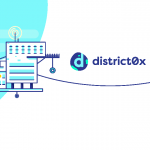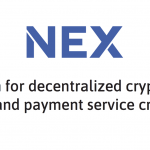PROJECT OVERVIEW.
PascalCoin is a new cryptocurrency written from scratch, and is designed to work without an operations history, yet is able to control double spending or check balance. Instead of storing balances on the blockchain, PascalCoin offers a safebox system similar to a bank account.
Based on this groundbreaking and unique new idea in crypto, PascalCoin pioneers a new tier of scalability suitable for planetary-scale adoption. It is the first and only cryptocurrency to have broken the 100 transactions per second barrier!
BACKGROUND.
Most cryptocurrencies could eventually fail over a long period of time since their history of transactions become so large that new nodes cannot synchronize and existing nodes run out of storage, among many other failures. PascalCoin is the first cryptocurrency to solve this major shortcoming. More on how it solves this later.
Pascal Coin was launched without any pre-mine, ICO or investment rounds. The PascalCoin developer community is made up of independently wealthy, self-funded evangelists who believe in, develop and promote this game-changing technology. As a result, the currency has a healthy distribution without disproportionate early investor hands, as is the case with many ICO coins.
The coin was written in Free Pascal, a modern, system-level, object-oriented programming language with advanced features. It was originally designed as an alternative to C, and with its modern advances and upgrades, has become a great language for writing high-performance, cross-platform native code.
HOW IT WORKS.
PascalCoin achieves infinite scaling by storing the flow rather than the history of transactions. PascalCoin only keeps the last 100 blocks of the blockchain whilst retaining the cryptographic security of the full blockchain.
It achieves this by using the SafeBox to keep track of user account balances and ownership whilst simultaneously retaining the aggregated proof-of-work difficulty within the SafeBox itself.
In order to forge a SafeBox, it would require re-mining the entire history of blocks even though those blocks are no longer known (even by the network).
OTHER FEATURES.
Account Names and Types.
One of the key new features of PascalCoin is that accounts can have unique names which are publically visible, much in the same way as the domain names system. Through easy to remember account numbers instead of cryptographic addresses, PascalCoin is an easy to understand and easy to work with cryptocurrency.
It allows a shop to receive payments to their domain name or brand name. Payments still refer to accounts via numbers, but the name is used to lookup the account number just as a domain name is used to lookup an IP address.
SIMILAR COINS.
There are different “scalability problems” that can be addressed in a different way:
First, the storage space needed on full nodes. Fortunately, in this aspect many coins (at least all newer ones with Bitcoin-0.11+ based code) are scalable because they have built-in pruning functions, and HD space is getting rapidly cheaper.
Second, the upload bandwidth needed to propagate blocks. Here, the smaller the blocks, in theory, the faster the propagation - but coins with a low time interval between blocks carry a high orphaning risk. That’s the point where “DAG” Coins like IOTA and Byteball could excel (if they really work as intended, as both alpha versions are still centralized). Also, the “Xthin Blocks” feature of Bitcoin Unlimited may fit here.
Third, the download bandwidth and CPU capacity needed to download and validate the blockchain. That’s a major problem if we talk about really big user bases (>10-20 million users) and >1TB blockchains. This happens to be the major scalability problem regarding mass adoption, the two others are less important.
For the third problem, a support for decentralized sidechains is a great solution, as with sidechains not all nodes have to download all blocks. There are currently two projects with hard-coded sidechain functionality: Lisk and Ardor. Both, unfortunately, at this moment don’t support pegged sidechains with price-equivalent tokens. Pegged sidechains are possible with every turing-complete Smart contract platform, e.g. Ethereum, Burst and Qora.
Another issue is the transaction capacity. When it comes to generating blocks quickly, there is no competition for Ripple right now. Although Ripple is targeting a very different crowd compared to most cryptocurrencies, the technology powering this network has proven to be quite solid. The average Ripple network block is generated in as little as 3.5 seconds.
Ethereum also is somewhat in a league of its own, with the average block time sitting at the 14 second mark ever since April of 2016.
For a cryptocurrency that offers privacy and anonymity features, Monero has also proven to be quite a “quick” altcoin when it comes to generating new blocks on the network. With an average block time of just two minutes, Monero succeeds in providing users with anonymity features at 1/5th of the time bitcoin generates a block, which does not include any anonymity features.
The other contender is Litecoin. Compared to bitcoin’s block time, Litecoin generates network blocks 4 times as fast on the network. It takes an average of 2.5 minutes for this process to complete, which is quite an improvement.



















